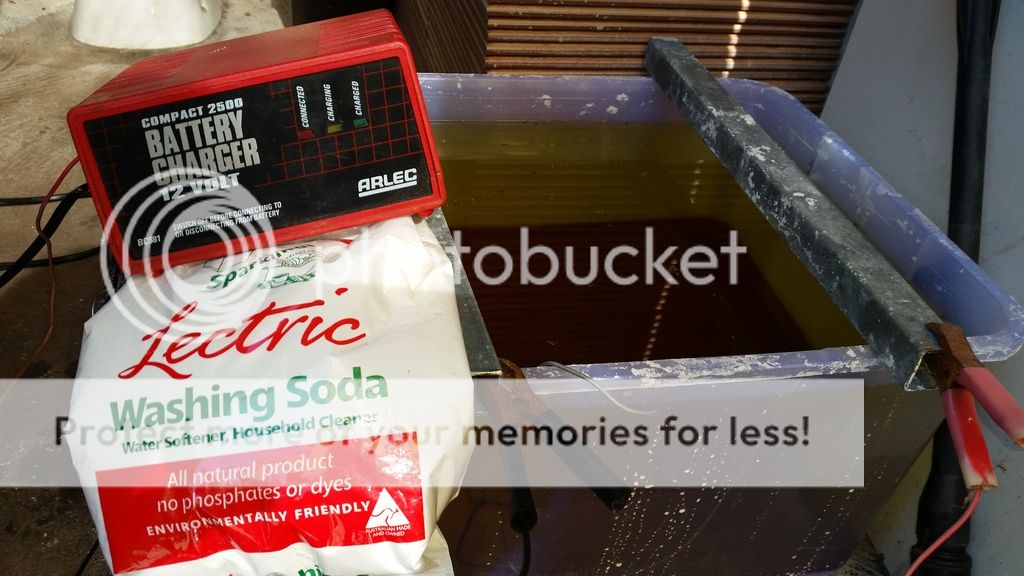Ok, a shot of the sediment from my last clean up

I have played with it, results can be varied and improved easily.
So simple. I use my timber built outside Dunny for such things


I have to use a fan under the Battery charger to stop the thermal over load from switching in and out.
I have earth leakage and circuit breakers on my mains supply. This is also duplicated on my workshop sub board. With a second earth stake as well, safety, to be sure to be sure. And most importantly, smoke detectors and a baby monitor beside my bed when I leave the process going at night.
I hate the damage done to frames etc when aggressively blasted.
My frames are soda blasted, no damage at all.
I purchased at auction a massive but very controllable truck, bus, earth-moving battery charging station.
And a giant size plastic wheelie bin.
Very soon, after a gentle soda blast my frames will be laser checked, straightened, Oven Jig relaxed, checked again and then all rust removed/reversed before being professionally painted, from a gun. Happy days.
Do it, you will be glad you did
